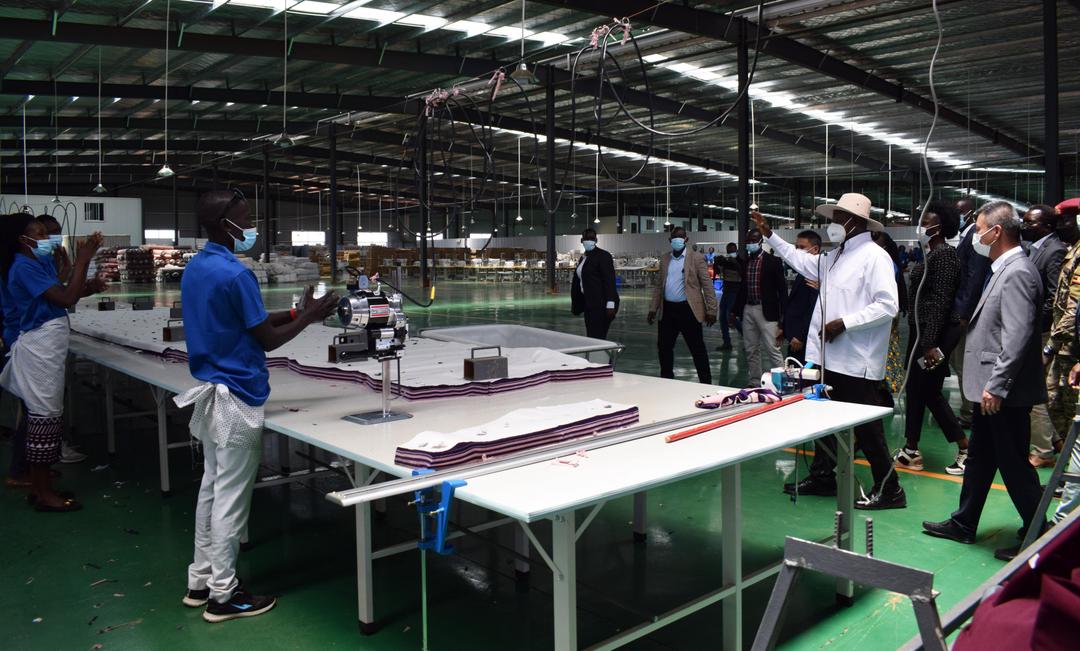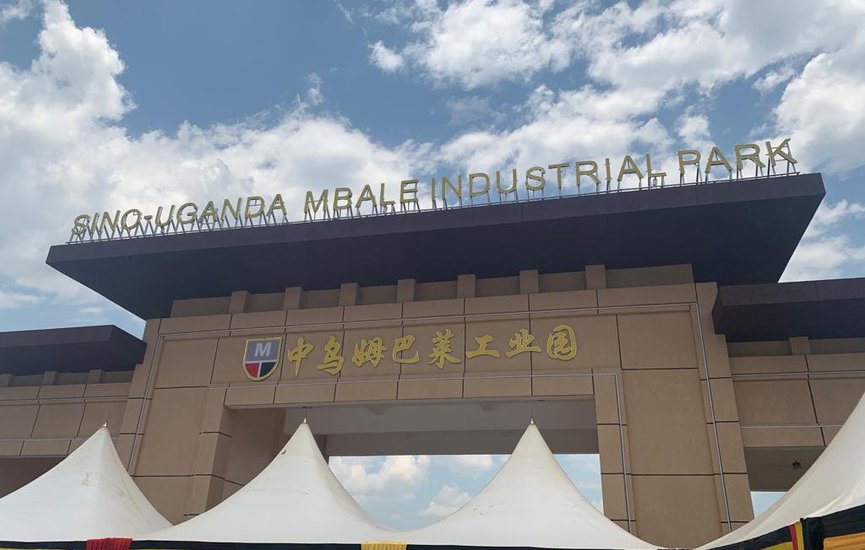Since its launch in 2018, the Sino Uganda Mbale Industrial Park has played a pivotal role in Uganda's industrialization, job creation, and economic development. With over 11,000 Ugandans employed, the park has positively impacted thousands of lives across the country, offering direct and indirect benefits to local communities through income generation, skills development, and market connections.
"Since the park’s inception, it has transformed many lives. Beyond bringing in capital and technology, we've bolstered Uganda’s production capacity and made a tangible impact," said Frank Liu, Deputy General Manager of Sino Mbale Industrial Park.
Liu praised the dedication of employees and the strong partnerships between the government, local communities, and private sector partners that have contributed to the park's growth. Laurent Zhang, the Park's Administrator, extended his congratulations to Ugandans on the country’s 63rd Independence anniversary, reaffirming Sino Mbale’s commitment to advancing Uganda’s industrialization agenda.
"With continued effort and cooperation, we aim to expand our workforce to 30,000 jobs in the next 10 years," Zhang shared. He also lauded policies like Buy Uganda Build Uganda (BUBU) and tax incentives that have attracted Chinese investment, fostering partnerships that benefit both nations.
"We’re not just creating jobs; we’re building a sustainable ecosystem. From raw material sourcing to manufacturing and distribution, each step adds value and creates new opportunities," he added.

Photo: Courtesy
The park primarily uses locally sourced raw materials such as cotton, eucalyptus logs, sugarcane, and iron ore, supporting Ugandan farmers and suppliers. Finished goods—such as paper products, textiles, and industrial materials—are exported to regional markets including Kenya, Tanzania, Rwanda, the Democratic Republic of Congo (DRC), and South Sudan, helping Uganda earn vital foreign exchange.
"Our operations also generate jobs along the value chain, from local wholesalers to transporters who bridge the gap between industries and retailers," Zhang explained.
Ivan Jonathan Epau, Human Resource Manager at Sino Uganda Mbale Industrial Park, highlighted the park’s inclusive employment policy, offering job opportunities for skilled, semi-skilled, and casual workers from various regions across Uganda.
"We hire from Mbale, Bukedi, Teso, Karamoja, and beyond. For casual workers, we require an LC1 recommendation, national ID, and passport photos for verification. Skilled positions go through a transparent recruitment process, including shortlisting and double interviews," said Epau. New hires undergo one to two weeks of training to ensure safety and operational readiness before joining the production line.
"This park has been a game-changer for this region. Mbale was truly transformed in 2018 when the park was established," Epau said, urging Ugandans to continue supporting and collaborating with Chinese investors to further expand the park’s impact.
At the Timber Paper Factory within the park, Shaw Xiao, the Human Resource Manager, explained how locally sourced eucalyptus logs and sugarcane are key materials in producing serviettes and toilet paper. This not only supports Uganda’s agricultural sector but also demonstrates how value addition can boost domestic production and exports.
Ayub Mugudwa, General Supervisor at Uni Steel Uganda, discussed the scale and employment opportunities within the factory.
"Our steel plant spans 200 acres and employs over 500 people. We operate in three phases—producing rebars, wire mesh, wire nails, and other materials. Both skilled and unskilled workers receive safety and factory operations training before they join the production line," Mugudwa said. He praised the government’s investment climate and cooperation with Chinese partners.
Dennis Nangai, a carpenter at Tianao Furniture Manufacturing Company, shared his journey from starting with no skills to becoming a skilled worker at the park.
"When I joined this company, I had no experience. I started earning Shs 7,000 per day, but as I gained experience, my pay increased. I learned everything on the job," Nangai explained. He called for more vocational training institutes to help young people from low-income backgrounds acquire employable skills.
"We also need to speed up the National ID processing at NIRA. Many young people miss out on opportunities simply because they lack the ID needed to apply," he added.
Grace Nasongo, a graduate in Polymer, Textile, and Industrial Engineering from Busitema University, found her current job at the park during an academic break.
"I didn’t know such a facility existed in Mbale where I could apply my skills. It’s a fantastic initiative, and I’m grateful to the president for bringing it here. Many graduates leave university without experience—this park gives us a chance to build our skills and CVs," Nasongo said.
She was introduced to the company by her mother during vacation and applied for a lab attendant position. "Since I had a science background, I applied and was trained on the job. I’ve gained a lot of practical experience I didn’t learn at university," Nasongo concluded.
